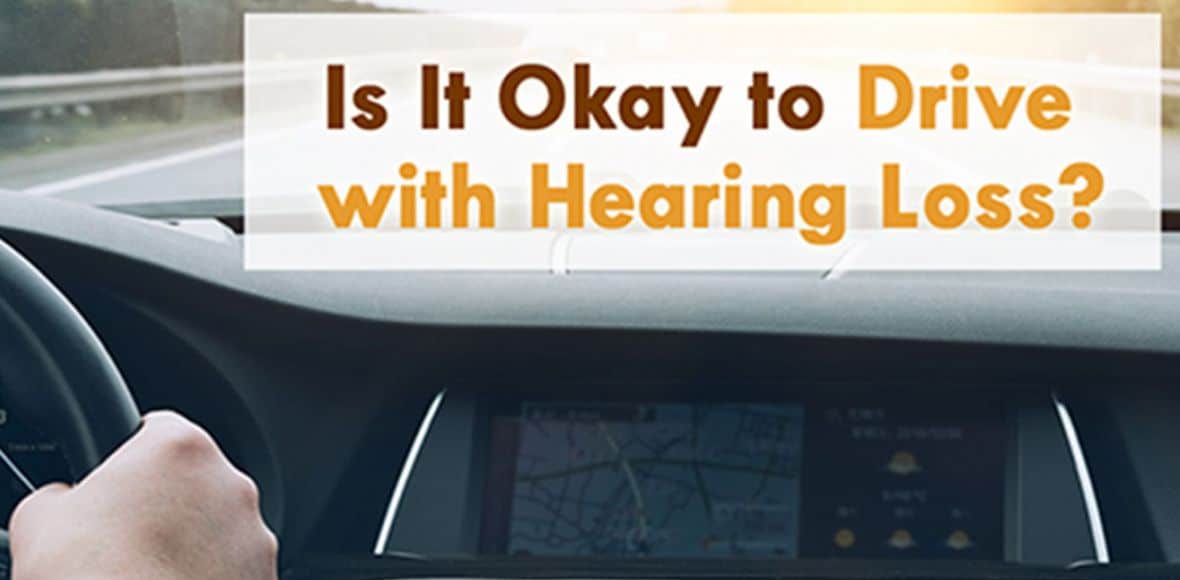Learning how to drive is one of the most useful skills anyone can develop as we grow older. Being able to drive yourself safely from one place to another at your own pace, pick up your friends along the way and carpool, and put your items such as grocery bags and work supplies are just one of the many perks of learning how to drive. It’s safe to say, life is more convenient when you have a car.
However, the case may be a little bit different for someone who is experiencing hearing loss. So if you or someone you know is thinking about driving while experiencing hearing loss, you might want to check this out first.
Is hearing important in driving?
Most of us think that vision is the only sense that is important when driving. Little do we know, another sense that works just as hard as vision when it comes to keeping us safe on the road is our hearing. How?
1. It alerts us while inside the vehicle.
Most cars today have this automatic notification that reminds the driver when he forgets to secure a certain part of the vehicle. This includes warnings when seatbelt is off or a door was left open.
2. It gives us a general information about the status of the car.
Vehicles are made in such a way that it signals the driver as an aid to ensure safety when driving. This includes the sound it creates when the driver is making a turn. It also produces sounds when there is something up with the brakes or the engine. Moreover, you’d know if you are low on gasoline.
3. It helps us become wary of the environment around us.
The road is filled with a lot of other vehicles. Car horns and sirens are built to warn other drivers about a vehicle’s approach, presence, or emergency in cases of ambulance, police cars, and firetrucks.
Road safe tips for individuals with imperfect hearing
Nonetheless, it’s a misconception that hearing loss patients cannot drive. There are plenty of ways in which you can ensure safe journey on the road even with imperfect hearing. Here’s what you can do:
1. Reduce sounds coming from the speakers.
Remember, hearing sounds is already challenging for someone who is experiencing hearing loss. Adding up other sources of sounds will just intensify the difficulty that you are facing. It’s best to turn down, or better yet, turn off the radio when driving. This will help you focus more on the road.
2. Tell your passengers to keep the noise to a minimum.
Having someone to talk to on the road helps in keeping you awake while driving. However, noise should be kept at a minimum as to not completely divide your attention and make it hard for you to hear signals and honks from the driving environment.
3. Keep an eye out for visual cues.
Driving requires two senses — vision and hearing. Pay attention to important elements on the road such as traffic signs and activities of other drivers. Don’t forget to check your mirrors too!
4. Eliminate the noise.
Aside from lowering the volume of the radio and asking your passengers to keep their conversations to a minimum, you may want to close the windows of the car as well. Most cars nowadays are designed to reduce road noise. Use this to your advantage.
5. Get a hearing aid.
The easiest way to solve your hearing loss problem is to get a hearing aid. Our body works best in our day-to-day activities when our organs are functioning to their utmost capabilities. Don’t be afraid to approach an ear doctor and get a hearing test as soon as possible.
Loss of hearing is a common misconception about driving. Prove it otherwise by getting on the road confidently. Drive safely with the help of hearing aids!
For hearing aid tests, please call (632) 523 0098.








